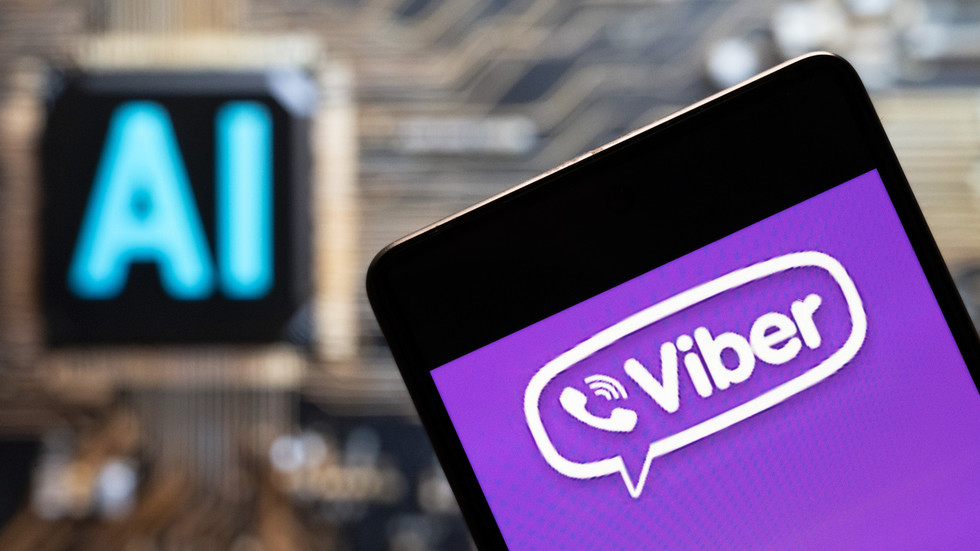Introduction
The recent decision by Moscow to ban the Viber messaging app has raised eyebrows and ignited discussions regarding digital communication in Russia. As one of the most popular messaging platforms, Viber has been a key tool for millions of users in the country. This article will explore the motivations behind the ban, the implications for users and businesses, and the broader context of digital communication in Russia. Through an in-depth analysis, we aim to provide a comprehensive understanding of this significant move.
Understanding the Ban on Viber
The ban on Viber, which was announced by the Russian government, is part of a larger trend of increasing regulation and control over digital communications within the country. This action is not isolated; it follows a series of restrictions placed on various foreign messaging apps and social media platforms. The Russian authorities have cited concerns over national security, data privacy, and potential foreign influence as primary reasons for their crackdown on these services.
Reasons Behind the Ban
- National Security Concerns: Russian officials argue that foreign messaging apps pose a risk to national security. They assert that these platforms are susceptible to espionage and can be exploited by foreign entities to undermine Russian sovereignty.
- Data Privacy and Control: The government has intensified its focus on data localization laws, which require companies to store user data on Russian servers. Viber, being a foreign app, may not comply with these regulations, leading to its ban.
- Information Warfare: In an era marked by misinformation and digital propaganda, the Russian government is keen to control the narrative. Banning foreign messaging apps is viewed as a way to minimize the influence of external sources that could potentially spread dissent or disinformation.
The Impact on Users
The ban on Viber will undoubtedly have significant implications for its users. With millions relying on the app for personal and business communication, the sudden restriction could lead to several challenges:
Loss of Communication Channels
For many users, Viber has been a primary means of staying in touch with family, friends, and colleagues, especially for those with connections abroad. The ban will disrupt these communication lines, forcing users to seek alternative platforms, which may not offer the same level of functionality or familiarity.
Business Implications
Businesses that rely on Viber for customer communication and internal coordination will face hurdles in adapting to the change. The sudden need to transition to other communication tools could lead to operational inefficiencies and increased costs. Moreover, the lack of reliable and secure alternatives could jeopardize sensitive business information.
Rise of Local Competitors
In response to the ban, there may be a surge in usage of domestic messaging apps such as Telegram, WhatsApp, or local alternatives developed specifically for the Russian market. However, these platforms may not be free from government scrutiny or data privacy issues. Users may have to weigh the benefits of local applications against their own privacy concerns.
Broader Context of Digital Control in Russia
The Viber ban is part of a broader pattern of digital control and regulation that has intensified over the past few years. The Russian government has implemented a series of laws aimed at tightening its grip on the internet and ensuring state oversight of digital communications.
The Sovereign Internet Law
In late 2019, Russia passed the “Sovereign Internet Law,” which allows the government to disconnect the Russian internet from the global network in case of a cyber attack or other threats. This law is a cornerstone of Russia’s strategy to maintain control over the digital space and limit foreign influence.
Impact on Freedom of Expression
As the government tightens its control over digital communication, concerns about freedom of expression and censorship have grown. Critics argue that these regulations are designed to stifle dissent and suppress independent voices. The ban on Viber adds to the growing list of platforms that have been restricted or censored, raising fears of an increasingly repressive digital environment.
Potential Responses from Users and Activists
The ban on Viber has prompted various reactions from users, activists, and digital rights organizations. While some users may simply switch to alternative messaging apps, others are likely to voice their discontent through protests, petitions, and social media campaigns.
Advocacy for Digital Rights
Digital rights advocates are calling for greater transparency and accountability from the government regarding its decisions on banning apps. They argue that users should have the freedom to choose their communication tools without state interference. Such activism could lead to increased pressure on the government to reconsider its approach to digital regulation.
Exploration of Decentralized Alternatives
In light of increasing restrictions, there may be a growing interest in decentralized messaging platforms that prioritize user privacy and security. Apps that utilize end-to-end encryption and operate on peer-to-peer networks could gain traction among users looking for alternatives to state-controlled platforms.
Conclusion
The ban on Viber by Moscow marks a significant moment in the ongoing evolution of digital communication in Russia. While the government cites national security and data privacy as justifications, the implications for users and businesses are profound. As the landscape of digital communication continues to shift, the responses from users, businesses, and advocates will play a critical role in shaping the future of communication in the country.
As the global community watches closely, the situation may serve as a bellwether for other nations grappling with similar issues of digital sovereignty and control. Ultimately, the balance between security and freedom in the digital age remains a contentious and evolving debate.
See more Future Tech Daily

